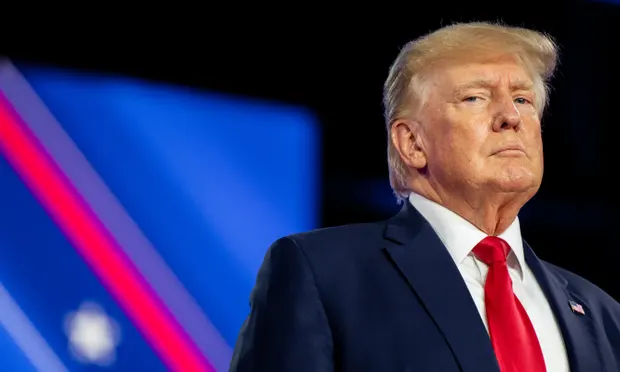There’s guilty and there’s not guilty.
Then there’s ‘whatever’, the verdict that Donald Trump had already bagged long before a New York court delivered its judgement.
Beyond the breakdown of a 12-member jury panel, the portion of America that will shrug its shoulders at this case’s conclusion means Donald Trump has numbers he can work with, politically. For now, at least.
Time will tell how the status change to “criminal”affects his bid to return to the White House. Notably, polls indicate it will go down badly with independent voters.
For his opponents, it will need to – because, in six weeks of a criminal trial, it didn’t.
For all the talk of due process having due impact on a presidential campaign, of evidence laid bare to land a political death warrant, the Trump campaign remains alive and kicking.
Head-to-head polls with Joe Biden still show a tight contest, with Trump ahead in key swing states. The trial has also boosted his campaign war chest – his fund-raising was greater than Joe Biden in the month of April, a 2024 first.
While this trial has been a thunderous legal watershed for the United States, there are reasons why it has not reverberated as it might, and as Trump’s opponents would have hoped.
Of the four criminal trials he faces, it was the least serious. Placed against the heavyweight charges around the mishandling of classified government documents and efforts to subvert democracy, the New York crimes had a featherweight feel.
It was rather more than the “bookkeeping error” that Trump would have had us believe but there are factors beyond his characterisation that minimise impact.
The prosecutors’ witness list was populated by unsympathetic characters to whom you would not hand your house keys.
Michael Cohen, aka star witness, presented his own story of theft, dishonesty and tax evasion. Then there was David Pecker, the slippery tabloid rascal who brought us headlines like “Bungling Surgeon Ben Carson Left Sponge in Patient’s Brain”.
They were central to a prosecution case wrapped in a parcel of rogues and it weakened the ‘good versus evil’ narrative that sharpens a public’s response.
There was also the matter of trial fatigue, before it even got underway. The charges, the witness evidence and the response of the accused had all been aired loudly and often over months leading up to the trial itself.
As much as five weeks of evidence provided a gripping insight, we had heard the headlines before. The cases for the prosecution and defence were pre-cast in the public consciousness and so, largely, were conclusions around guilt and innocence.
Then there were the noises off. Time spent in the vicinity of courtroom number 1530 in Lower Manhattan was time spent listening to Donald Trump campaigning in the corridors of the court building, with a supporting cast addressing the media outside.
Suburban vehicles and Secret Service transported the modern Republican Party’s great and good from Capitol Hill in daily convoys to loudhailer a backing chorus of ‘sham trial, weaponised justice department and political witch hunt.’
It was a political wall of sound designed to drown out the business of the court on a given day, every day. They were not the headline act in this corner of Lower Manhattan but they were headline enough to influence the story in its telling.

So, what story will America be telling when the dust settles on this, the only criminal trial Donald Trump is likely to face before the November election?
Will voters be discussing Donald Trump? Definitely.
Will they be poring over the detail and significance of a felony conviction? Probably.
Will there be a lingering sense of shock and awe at court’s evidence and jury’s verdict? Almost certainly not.
He has already been convicted in civil court of fraud and been found liable for sexual assault. The judge in the sexual assault case called it “rape”.
If Donald Trump was in prison, he would be segregated for his own safety, and yet, in the general population he’s positioned well for a return to the presidency.
It is the curious context for this court case and its aftermath. Whatever the difference a criminal conviction makes, the sense of ‘whatever’ might mean it makes no difference at all.









































